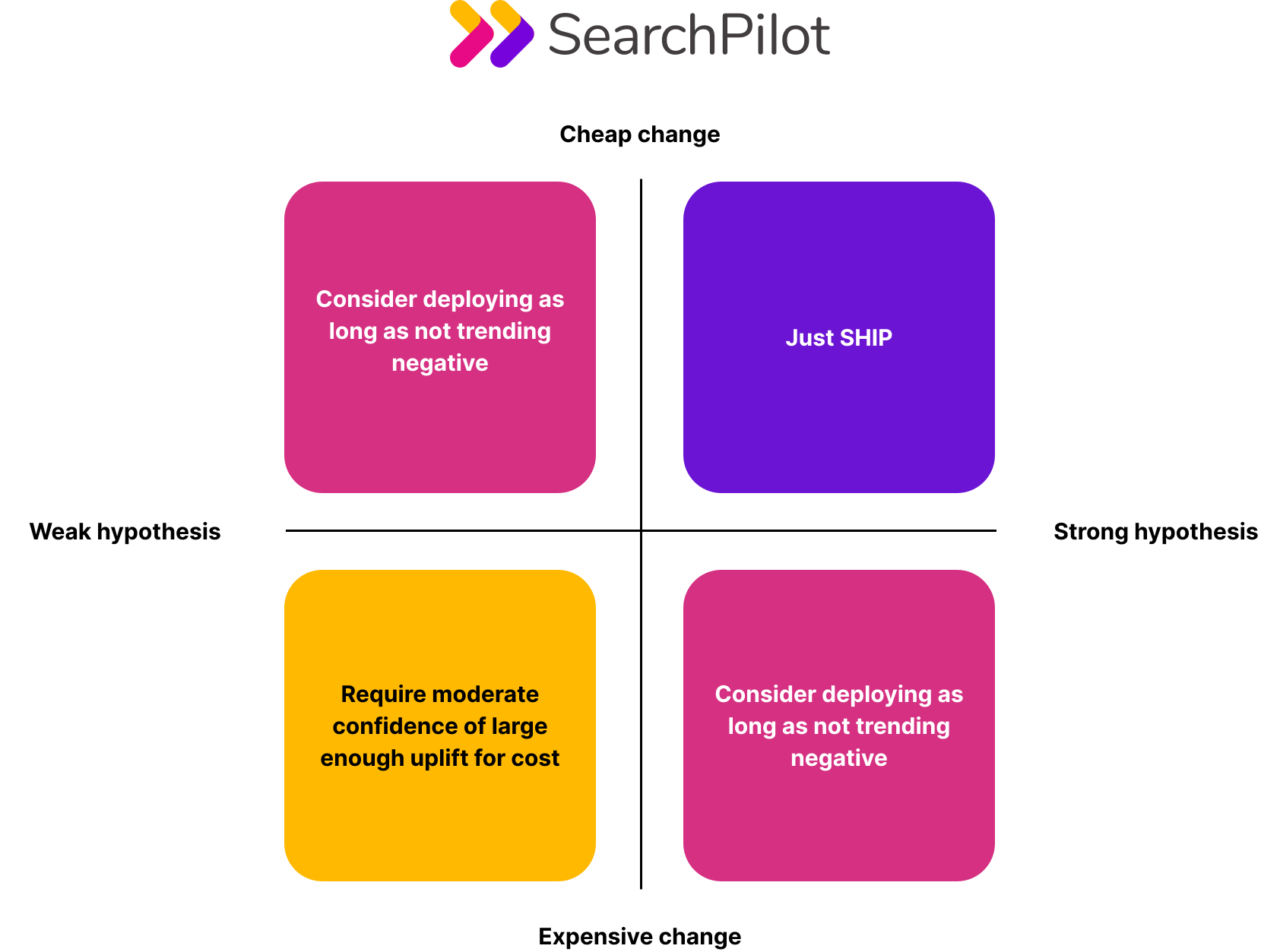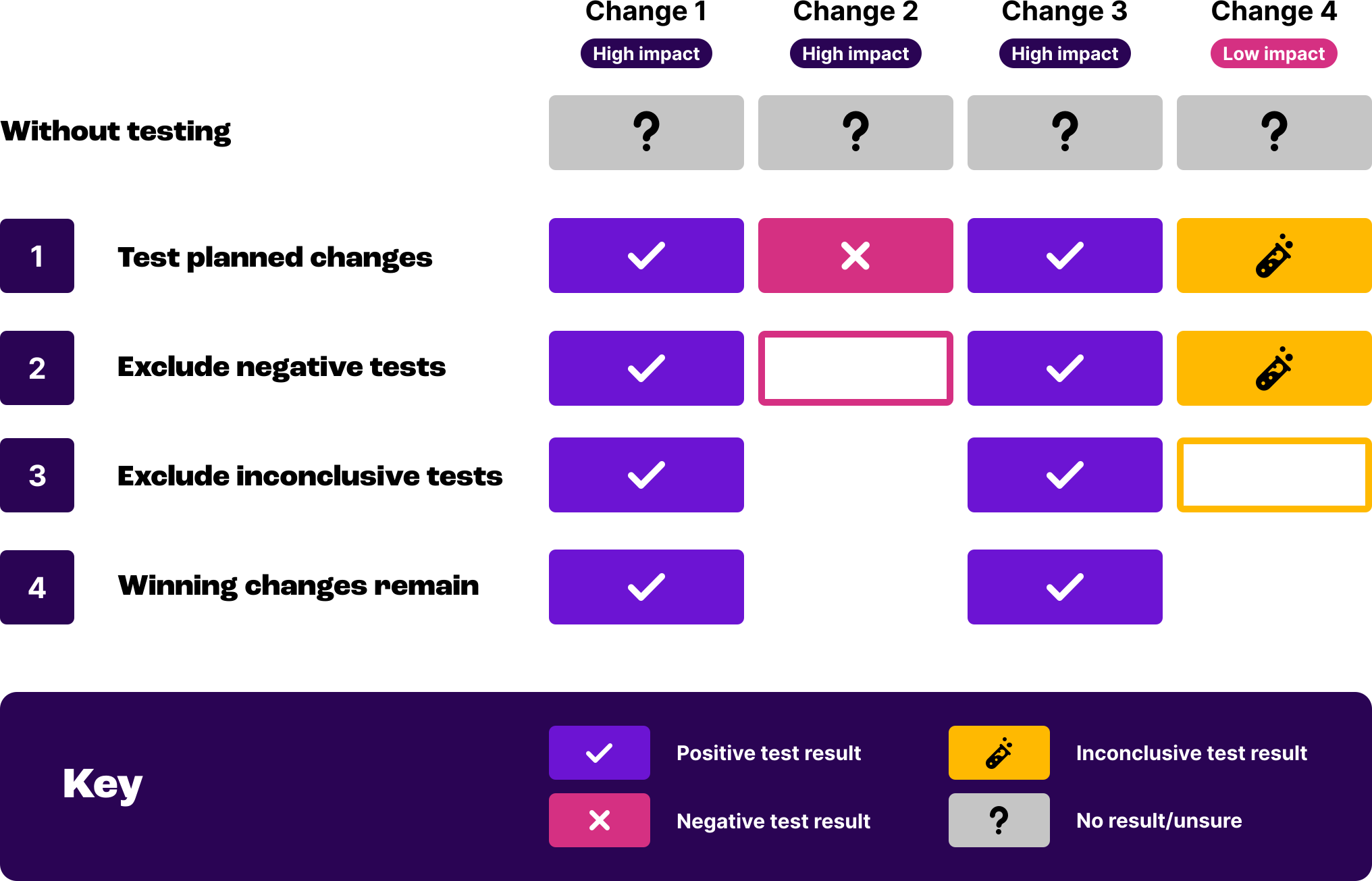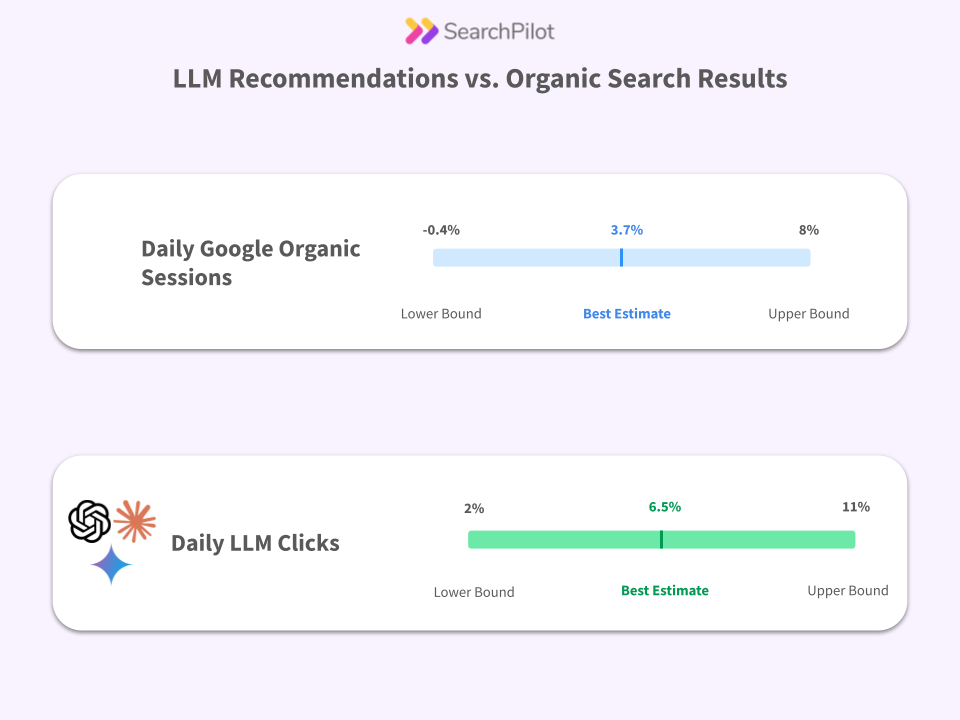You don’t need me to tell you that it’s a difficult time for many businesses. And that means it’s a difficult time for marketers, too.
According to Gartner, 75 percent of CMOs have been asked to do more with less in 2023. The unprecedented disruption of the past few years has meant companies have fewer resources to dedicate to their marketing efforts and stricter expectations for ROI.
For SEO — a marketing channel that is routinely described as a marathon, not a sprint — this can sound like a perfect storm. SEO teams are under pressure to prove their worth and show quick results with fewer resources, but they still have seasonal variation and algorithm updates to contend with. Sounds like an impossible challenge…
Well, not necessarily. I’m going to argue that, with the right approach, this could be a major opportunity for SEO teams. By implementing an effective SEO testing strategy, you can deploy winning changes at pace — and prove their impact on ROI.
Understanding today’s SEO challenges
Before we look at how testing can help you build a powerful business case for your SEO initiatives, let’s look more closely at the problems SEO teams are facing today.
A survey by Search Engine Journal found that the top three concerns for SEOs going into 2023 were:
- Lack of resources
- Strategy issues
- Scaling processes
What’s most telling is how deeply entwined these challenges are. Each of these problems points to the same core difficulty: proving ROI.
If you can’t demonstrate the business impact of your initiatives, you’ll struggle to secure the budget you need — and that means a lack of resources and difficulty in scaling your approach. By the same token, if you can’t track the success of your strategy, you won’t be able to iterate effectively. With no way to capitalize on your successes or learn from your failures, you can’t make efficient use of the resources you do have.
So, how can SEO teams track their impact on the bottom line and secure the budget they deserve? The answer lies in a comprehensive SEO testing program.
Why SEO testing is essential in turbulent times
Testing doesn’t have to mean waiting
Right now, delivering results at pace is key. With budgets under scrutiny, delays in moving the needle will be difficult to justify. But by its nature, SEO is slower at delivering results than paid channels. Won’t testing just slow you down further?
In fact, the opposite is true. With clear, verifiable test results in hand, you can deploy changes faster, safe in the knowledge you’ve already ruled out the losers. Testing provides the guardrails to keep you on track and reduce your risk of making critical errors, letting you move faster and deploy quicker.
And if speed is imperative, you can even adjust how you act on test results by prioritizing pace over certainty.
For instance, in normal circumstances, you might require a relatively high confidence level for weaker hypotheses or more expensive changes. Even for cheaper changes, you may still want to reach a certain level of statistical significance before you deploy — which means waiting longer to get more test data.
.png?width=1684&height=1253&name=blog-business-not-science-2x2%20(1).png) But if delivering results is key, you can shift your emphasis. You can default to deploy for cheap changes with a strong hypothesis, while taking a balanced approach to those changes with bigger potential downsides.
But if delivering results is key, you can shift your emphasis. You can default to deploy for cheap changes with a strong hypothesis, while taking a balanced approach to those changes with bigger potential downsides.

With this approach, SEO testing can help you deliver rapid results with fewer risks — the ideal combination in the current environment.
CFOs are seeking efficiency
We mentioned above that “doing more with less” is a key imperative for CMOs in 2023 — and that demand is coming from CFOs, who are struggling to maintain profitability in difficult times.
SEO testing plays a major role in meeting these challenging expectations.
The reality is that SEO can be resource-intensive for larger websites. Your engineering team may need weeks to implement any significant changes. This not only delays your time-to-value, but it can also interfere with their own business-critical tasks. Suddenly, your SEO strategy seems like more of a burden than a benefit to senior leaders.
However, by testing changes before you deploy, you can rule out those initiatives that won’t move the needle — or, worse, that would result in a drop in traffic.

Once you test your planned changes, you can exclude the ones that have a negative impact (the red boxes) and those that are inconclusive (the grey boxes). Your engineering team can then focus on rolling out only the winning changes.
(Or, if you use SearchPilot’s meta-CMS, you can deploy them yourself!)
Loss aversion is more important than ever
Of course, no SEO team wants to see organic traffic plummet because of an ill-advised website adjustment. But in the current environment, it’s not just the total catastrophes you want to avoid. You need to look out for those smaller losses too — after all, they can quickly add up.
Part of the problem with marginal losses, however, is that they’re much harder to detect. If your traffic drops by 20%, that’s pretty hard to miss. If it drops by 2%, well, that’s a different matter. Those kinds of drops can easily get lost among other shifts — seasonality, algorithm changes, competitor actions, and so on.
But with rigorous testing processes in place, you’ll be able to track the impact of any changes you make. This means you can claim credit for your wins, as well as identify those marginal losses and quickly change course.
Test faster with SearchPilot
Now more than ever, SEO teams need to prove their value and deliver attributable ROI.
That doesn’t just mean delivering traffic uplifts through smart, well-tested SEO initiatives — as important as that is. It also means making impactful changes quickly, tracking the impact effectively, and doing all this with minimal demands on other teams.
No mean feat, right? Well, there’s help on hand. With SearchPilot, you can perform large-scale SEO tests and deploy the winners with ease. And if that sounds too good to be true, why not get in touch for a hands-on demo from one of our experts?

.png)

